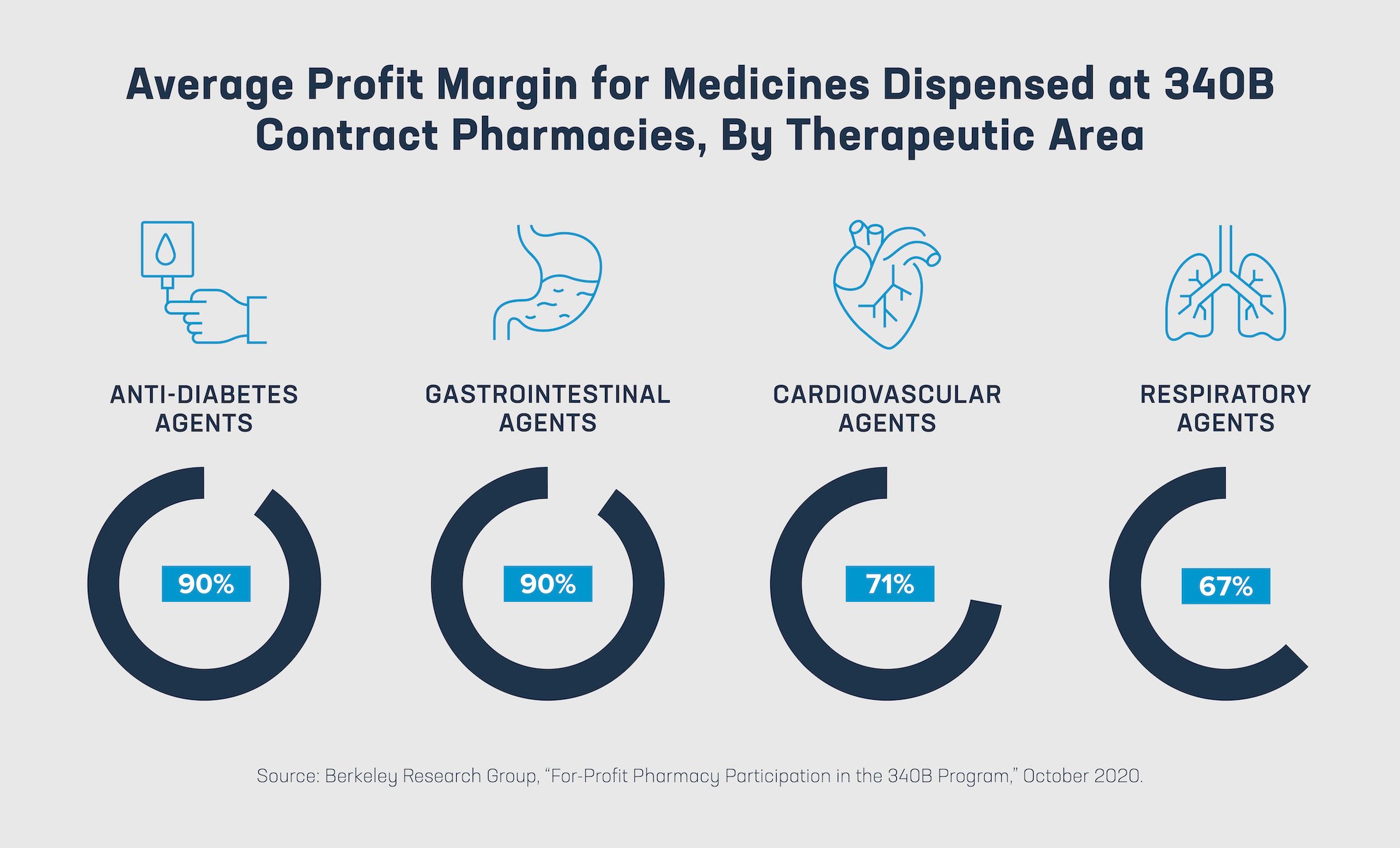Over the years, there has been repeated acknowledgement that the 340B program is often not supporting the patients it was intended to help. (If you need a reminder, check out this piece in the New England Journal of Medicine or this Government Accountability Office report or even this new piece in the American Journal of Managed Care.) Despite this evidence, some advocates claim contract pharmacy participation in the 340B program is helping patients access medicines. The truth is, there are zero 340B protections in place to ensure that needy patients get discounted medicines from contract pharmacies. Let’s look at the facts.
Fact: 340B contract pharmacies are not helping communities of color or underserved communities improve access to needed medicines because often times 340B contract pharmacies are not located where vulnerable, uninsured patients live. When mapping out contract pharmacy locations, it becomes very clear that most 340B contract pharmacies are actually clustered around metropolitan centers, not low-income or rural communities. A recent study published in Health Affairs found that “pharmacy deserts” (areas with limited geographic access to pharmacies) were primarily in Black or Hispanic/Latino neighborhoods in 2015, and only one in four pharmacies located in these neighborhoods participated in the 340B program. As the authors concluded, “In all cities examined, we found persistently fewer pharmacies located in Black and Hispanic/Latino neighborhoods than White or diverse neighborhoods throughout 2007-15.”
Fact: Uninsured patients who show up at a 340B hospital’s contract pharmacy do not always benefit from the discounted price. Instead, an uninsured patient whose prescription qualified for a 340B discount may still be stuck paying the list price for their medicine, while the pharmacy and the hospital split the 340B profits. The Government Accountability Office found that less than half of the 340B hospitals surveyed provided discounts to low-income, uninsured patients at some or all of their contract pharmacies.
Importantly, contract pharmacies are not listed in the 340B statute, and there is virtually no oversight of them by covered entities they contract with or HRSA to ensure program requirements are met. In addition, there is no expectation that they help patients afford their medicines. These pharmacies, many of which are for-profit retail pharmacies like Walgreens and CVS, are raking in billions in profits every year through the 340B program. The average profit margin for 340B covered entities and their contract pharmacies on 340B medicines commonly dispensed through contract pharmacies is an estimated 72%. Compare that with non-340B medicines commonly dispensed through independent pharmacies that make an average profit of 22%. As a result, 340B covered entities and their contract pharmacies generated an estimated $13 billion in gross profits on 340B-purchased retail medicines in 2018.

It should be alarming to policymakers and all Americans that for-profit pharmacies, many of which are in the top 20 on the Fortune 500 list, are manipulating a safety-net program meant to help needy patients to increase their profits. This is just one of many ways the 340B program has strayed off course. That’s why the biopharmaceutical industry is pushing for patient-centered changes to the 340B program that ensure the billions of dollars manufacturers provide in 340B discounts every year are more directly helping patients.
Learn more at PhRMA.org/340B.




